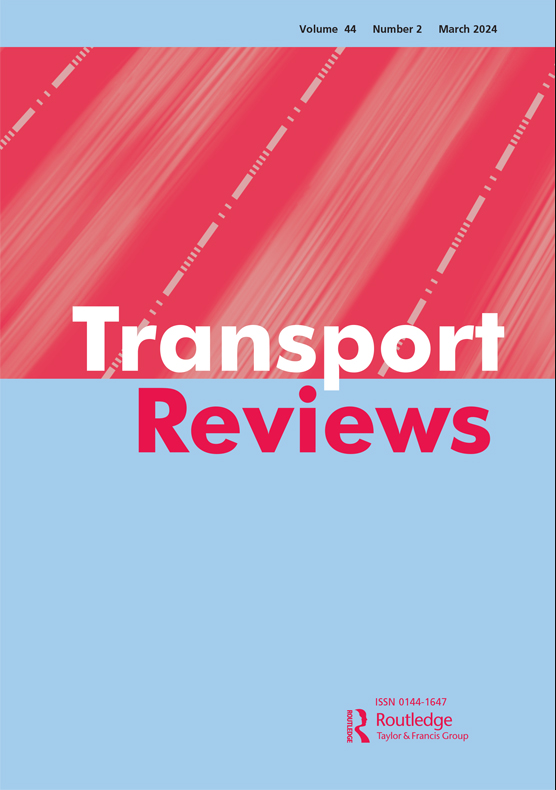The travel-hope framework: bridging hope, travel, and well-being
IF 9.9
1区 工程技术
Q1 TRANSPORTATION
引用次数: 0
Abstract
Hope is defined as the capability to pursue a desired goal by leveraging one's abilities and potential pathways to goal attainment. This study aims to (1) chart and integrate conceptualizations and operationalizations of hope in travel and well-being research, and (2) investigate the relationship between hope and travel behaviour, as well as its associations with well-being concepts relevant to travel behaviour research, as a base for developing a Travel-Hope Framework. A scoping review was conducted with the following inclusion criteria: (i) adult participants, (ii) validated hope scales, (iii) relevance to travel behaviour and well-being research, (iv) written in English, and (v) peer-reviewed. A systematic search identified 13 studies on hope´s conceptualizations and measurement. While none explicitly explored its link to travel behaviour, hope was associated with cognitive, emotional, and social well-being components relevant to travel behaviour research. Building on these insights, we introduce the Travel-Hope Framework, which posits that hope – particularly in the form of travel autonomy and perceived accessibility, and experience and anticipation – is essential for behaviour change and well-being. By illuminating the role of hope in travel decision-making, this framework provides a novel perspective for travel research and policy. Understanding the dynamic interplay between hope, travel and well-being can inform targeted interventions to improve commuting experiences, foster equitable accessibility, and promote sustainable travel choices.
旅行-希望框架:连接希望、旅行和幸福
希望被定义为通过利用自己的能力和实现目标的潜在途径来追求期望目标的能力。本研究旨在(1)对旅行与幸福研究中希望的概念和操作方法进行图表化和整合;(2)调查希望与旅行行为之间的关系,以及它与旅行行为研究中相关的幸福概念的关联,作为制定旅行-希望框架的基础。根据以下纳入标准进行了范围审查:(i)成年参与者,(ii)经过验证的希望量表,(iii)与旅行行为和福祉研究的相关性,(iv)以英文撰写,(v)同行评审。一项系统搜索确定了13项关于希望的概念化和测量的研究。虽然没有人明确地探讨它与旅行行为的联系,但希望与旅行行为研究中相关的认知、情感和社会福利成分有关。在这些见解的基础上,我们引入了“旅行-希望框架”,该框架认为,希望——特别是以旅行自主性和可达性、体验和预期的形式——对行为改变和幸福至关重要。通过阐明希望在旅游决策中的作用,该框架为旅游研究和政策提供了一个新的视角。了解希望、旅行和幸福之间的动态相互作用,可以为有针对性的干预提供信息,以改善通勤体验,促进公平的可达性,并促进可持续的旅行选择。
本文章由计算机程序翻译,如有差异,请以英文原文为准。
求助全文
约1分钟内获得全文
求助全文
来源期刊

Transport Reviews
TRANSPORTATION-
CiteScore
17.70
自引率
1.00%
发文量
32
期刊介绍:
Transport Reviews is an international journal that comprehensively covers all aspects of transportation. It offers authoritative and current research-based reviews on transportation-related topics, catering to a knowledgeable audience while also being accessible to a wide readership.
Encouraging submissions from diverse disciplinary perspectives such as economics and engineering, as well as various subject areas like social issues and the environment, Transport Reviews welcomes contributions employing different methodological approaches, including modeling, qualitative methods, or mixed-methods. The reviews typically introduce new methodologies, analyses, innovative viewpoints, and original data, although they are not limited to research-based content.
 求助内容:
求助内容: 应助结果提醒方式:
应助结果提醒方式:


